Round-up of my reading for 2024
The now-traditional look back with links to reviews I wrote, plus a few new short ones
It's been another slow and eclectic year around my bookshelves, as has been the case pretty much since 2020. I read fewer complete books than in 2023 — only 28, and 5 of them were by the same author. Heavy on the fiction in 2024, with only 6 non-fiction (mostly history as usual). In a normal year I’d expect great chunks of the fiction to be either crime or sci-fi/fantasy, or indeed some blend thereof, but I only read a few of each in 2024. Perhaps there are no normal years anymore. Here’s some links to reviews I wrote as I went along, plus a few new short reviews — it might be too long for some email providers, so you may need to click through and read the rest on the website. I hope you find some ideas for your own To Read list in 2025.
I started the year with a couple of non-fiction books that I reviewed at the time, one history and one politics, and another history book I’ll give you a quick summary of in a moment. The Time Traveller’s Guide to Elizabethan England by Ian Mortimer does pretty much what you’d expect — endeavours to place you in the 2nd half of the 16th century in England by describing fashions, habits and major goings-on. It’s very readable while also being full of detail.
Politics On The Edge by Rory Stewart probably doesn’t tell you anything you didn’t strongly suspect, if you follow British politics and employ healthy cynicism around it. It was a well-written and sometimes amusing memoir by a serious-minded former-MP who shows himself to have been better suited to his other careers in academia and running charities.
A Short History of the World According to Sheep by Sally Coulthard might sound like it’s one for the serious sheep-nut but it is mainly social history across the world, seen with a sheepish slant. Knitting for soldiers in wartime, the wealth of medieval wool merchants, sheep-related phrases that have crept into everyday use. You get the idea. Lots of it’s fascinating, some of it even I didn’t have an inkling of (and I am fond of both sheep and social history), and very little of it requires you to know or care about the difference between a Hebridean and a Manx Loaghtan.
I reviewed the first few fiction reads of the year, I’ll put the links below: post-apocalyptic 1960s sci-fi novel Greybeard by Brian Aldiss; uncategorisable novel of folk music, folklore and place (not actually Dartmoor as I claimed, just somewhere very much like it) Villager by Tom Cox; and The Book of Witty Women featuring Kathy Lette and the CWIP-shortlisted stories (including one by me).
After that I read A Master of Djinn by American author P Djèlí Clark, another one I picked from a 2022 Guardian list of non-eurocentric fantasy novels that also gave me NK Jemisin’s Broken Earth trilogy in 2022/23. Fatma is an agent in the Egyptian Ministry of Alchemy, Enchantments, and Supernatural Entities in a 1912 Cairo that has automated carriages, and robots that are referred to as ‘boilerplate eunuchs’. She’s an irritatingly cocky loner but when she’s teamed up with a more conventional partner to investigate a mass murder we get a thrilling romp through secret societies, magical beings, and the contrasts between rich and poor. Despite the alternative history we still have rumblings of a coming war and the disintegration of the Ottoman empire as background, and the tense climax comes during a peace summit. This is actually the 3rd book in a series, though I think the previous ones might be novellas, but I didn’t feel like I was missing any background as I read it.
To pull me out of a reading slump I re-read the 1942 children’s book The Little Grey Men by BB (Denys Watkins-Pitchford). The story is about the last gnomes living in England, Warwickshire to be precise, and a trip they take up-river from where they live beneath an oak tree. It wasn’t so much the story as the nature-writing that I pulled The Little Grey Men off the shelf for, an aspect of the book that I’m sure I appreciate far more now than I did when I first read it as a child in the late 1980s. It is packed with detail: plants, birds’ nesting materials, the play of light on the bank from the water, seasonal changes. His descriptions are so vivid, like the ‘mudsmoke’ — the drift of muck washing off the cows’ legs as they stand in the shallows to drink — or ‘sherry-coloured’ pools. As with many children’s books with countryside themes, there’s a fair amount of death and destruction but I enjoyed it.
Over the summer I read and reviewed 3 comedic novels and a book of crime short stories. I’ll give you the links to the full reviews first, then tell/remind you what they were…
Virtual Strangers by Sam Canning is a 2023 rom-com set in Edinburgh. 30-year-old Ada finds herself falling for both her co-working space buddy Fraser, and an anonymous man she knows only through an Agatha Christie fan-fiction website, and it gets a bit complicated. Lovably hopeless main character and very funny.
The Purgatory Poisoning by Rebecca Rogers is another 2023 debut novel. It fits nicely into the classic British comic fantasy canon, and revolves around a dead man having to solve his own murder with the help of a pair of angels.
Lady Molly of Scotland Yard is a collection of stories from 1910 featuring a female Edwardian detective, by the author of the Scarlet Pimpernel stories, Baroness Orczy. Good for fans of Sherlock Holmes and Albert Campion.
I described Pleasantly Disturbed by Lee Stuart Evans as ‘a page-turning feelgood read of music, young love, and some prowling around boarded-up stations late at night’. Set in the 1980s, it’s got both romance and crime mixed in with its comedy, plus a lot of Simple Minds obsession1.
I went a bit ‘literary’ in the second half of the year, with three Anthony Trollope novels (The Belton Estate, Castle Richmond, and The Golden Lion of Granpere) and two JB Priestley (The Good Companions and Bright Day). I’ve now read 30 Trollope novels and I put together some thoughts on The Belton Estate, my 28th, shortly after I finished it (link below) — not one of his absolute best but you’ll probably enjoy it if you like Jane Austen or indeed Anthony Trollope. Castle Richmond was set during the Irish famine which I found interesting — Trollope had worked in Ireland during that time so he is drawing on his own memories 15 or so years later. There is an element of the Austen-esque impoverished posh girl looking for a suitor, but there’s another strand of the plot involving blackmail, scandal and points of law; all in all a good read. The Golden Lion of Granpere was altogether different, a charming, amusing tale set in a country inn in France, where a headstrong young girl does not want to marry the perfectly eligible young man her uncle has selected for her.
The two JB Priestley novels had quite different tones but were equally good: you can read my reviews by following the links above. The Good Companions from 1929 is a slow-burning doorstopper of a novel following three reasonably ordinary people from different backgrounds who get jolted out of their rut, take a chance and have an adventure. I described it as ‘a warm cardigan of a novel’ sprinkled with humour. Whereas Bright Day from 1946 I said was like watching ‘an excellent British black and white film…with just the right blend of warmth, humour and grit.’ In it, a jaded screenwriter looks back to his golden youth before the First World War and tries to work out how to fix his present dissatisfaction.
In September I snaffled some PG Wodehouse from The Library Of Mum and Dad2 as a comfort read and also — I tell myself — as a spur to finishing the rewrite of my Wodehouse-esque novel Hebburn and the Follies of Youth, set in Northumberland in the late 1920s. Pigs Have Wings is a Blandings novel I don’t remember reading before, though I’m sure I must have, and it frequently had me laughing aloud and reading choice phrases to my other half. As with most Blandings novels, it revolved around star-crossed young lovers and nobbled prize pigs but it’s the tangling and subsequent untangling of all the plots and sub-plots that has me in awe.
I was so dazzled by its brilliance that I went right back to the beginning and read Something Fresh, the first Blandings novel (no pig!), swiftly followed by Summer Lightning, which I do remember well, and Heavy Weather which is essentially Summer Lightning part 2 — it’s set about a week later and has mostly the same cast of characters. I even bought a couple of Blandings novels that aren’t available at The Library Of Mum and Dad, courtesy of my local Oxfam bookshop. Uncle Fred in the Springtime is nearly as light on pigs as Something Fresh, but that doughty sow Empress of Blandings is at least the mechanism by which several impostors turn up at the castle. There are also walk-on parts for characters more familiar from his Jeeves and Wooster books.
While we’re on comedy, I’ll mention Dave Cohen’s new book Funny Up Your Fiction, which might be of interest to the comedy prose-writers out there (novels and short stories, I mean, as opposed to scripts). Technically I haven’t read the finished article yet but I read it in draft form over the summer when Dave asked me to give him some feedback on the manuscript. It’s designed to help you engineer some comedy into even a reasonably serious novel. To comedy-drama your drama, if you will. It picks apart where humour can be found, what you might want to think about, and gives you a list of books to read and learn from — naturally, that includes the Blandings novels.
Just before Christmas I read the fourth book in Vaseem Khan’s excellent Malabar House series of crime novels set in India in 1950. In Death Of A Lesser God we follow the Indian police service’s only female detective as she reopens a politically sensitive murder case whose supposed culprit is about to hang. If there’s one thing I associate with Vaseem Khan it’s nuance, and this novel is a masterclass in grey areas and double standards. Thought-provoking, tense, and he’s really on Chandleresque form with his pithy descriptions. Book 5 (City Of Destruction) came out a few weeks ago and is on my To Read list.
I gave up on quite a few books in 2024. Several were ones I was trying to read on the Kobo app on my phone. I may have to admit that it’s not working for me, and buy myself a new e-reader.
Know Your Place by Faiza Shaheen is one I’ve not-quite-abandoned, it’s an evidence-based look at social mobility in the UK by an academic economist who has also been a left-wing Labour candidate. It’s passionate, articulate, I agree with so much of it (I’m halfway through in late December, I keep going back and reading another section) but my god it’s depressing. This quote from a 2023 Guardian interview sums it up: “Know Your Place offers a bleak assessment of inequality, but Shaheen believes change is possible if we reconsider what we are valuing.” If you either know less than I already do about UK inequality and its roots and remedies, or are less cynical about the political will to change any of it, I can recommend it as an eye-opening book.
I still haven’t read the David Kynaston book (Austerity Britain 1945-51) that I had lined up at the end of 2023 courtesy of my dad, so I really ought to bump that up the pile. He also recommended The Rise and Fall of the British Nation by David Edgerton which I’ve got waiting as an ebook, alongside The Full English by Stuart Maconie (JB Priestley’s English Journey revisited) which I bought in summer. I saved the second Blandings novel from my Oxfam haul to perk me up in January — that’s Full Moon. I’ve also downloaded a pdf of Looking for the Dawn by James Burnley which is an 1870s novel about Chartism written by a journalist who covered the Chartist riots of the 1840s. One of these days I will write a novel about Chartists in the West Riding, but I’ve been saying that for at least 10 years now.
There are 40 other books on my To Read list and you know I’ll add to it regularly during the year, so we’ll see how many I’ve got through by this time next year. In the meantime if you have thoughts on the books I read and reviewed in 2024, or the books I’ve photographed but not mentioned, or the books that you read in 2024 that you think I might be missing out on, do dive into the comments.
If you want more of this kind of stuff during the coming year and haven’t already subscribed, you can do so for free. But if you want to buy me a cuppa on Ko-fi it’s always much appreciated.
Finally, if you want to remind yourself where I was this time last year, here’s the link:
If you’re interested in the background to all that, Lee had an enlightening chat on a podcast recently: https://www.scotswhayhae.com/post/book-of-brilliant-things-the-scots-whay-hae-podcast-talks-to-lee-stuart-evans
I wondered if it should still be called that, now she’s gone, but they did build it up together. And she loved PG Wodehouse.

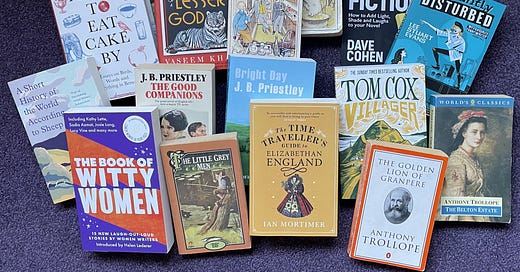



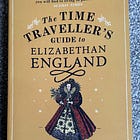
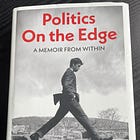

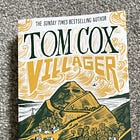


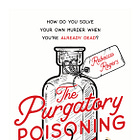

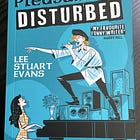
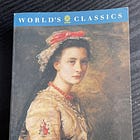
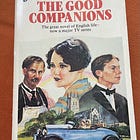
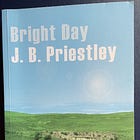
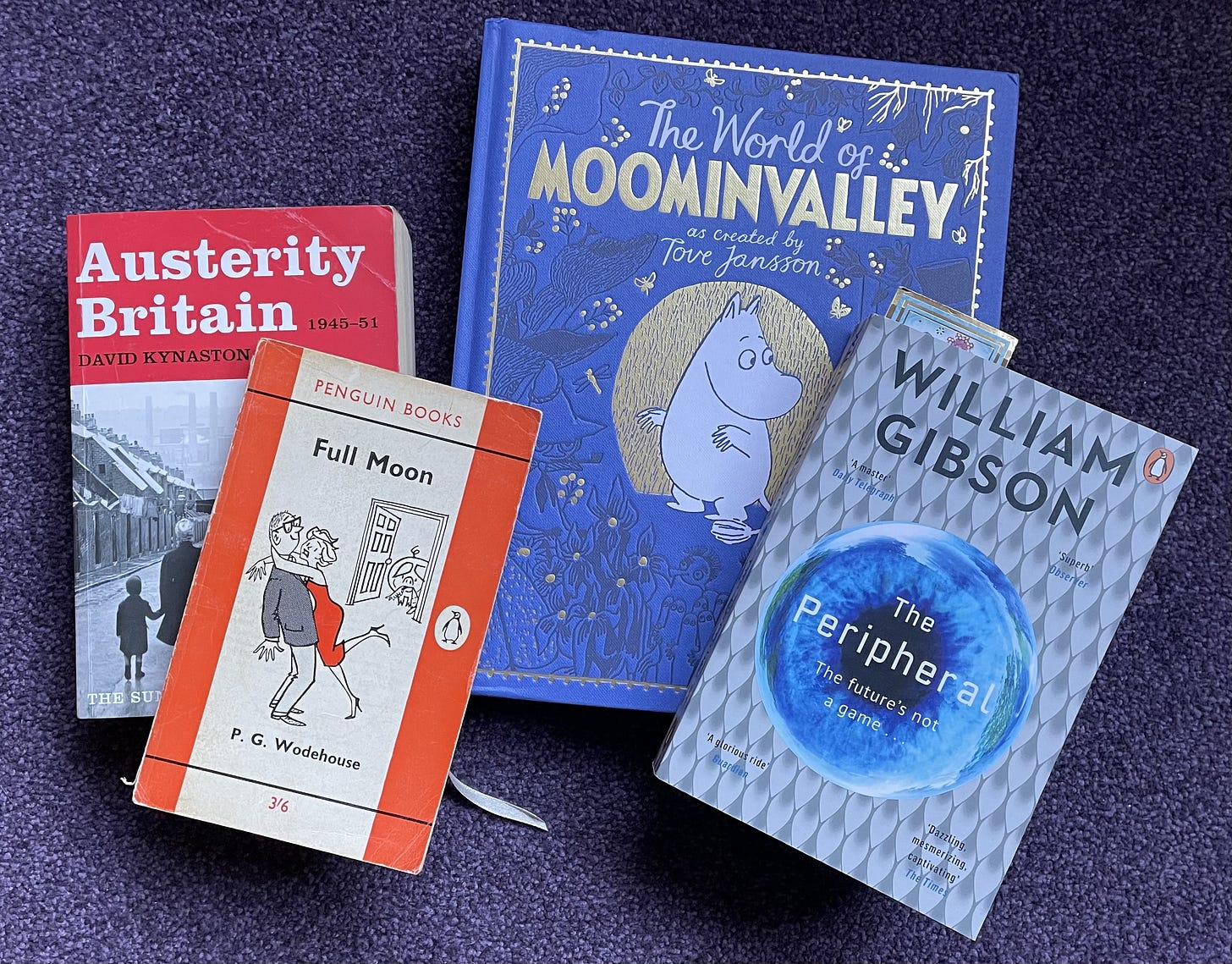
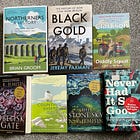
Very honoured to be included in your end of year reading round-up, and thank you so much again for your lovely review and for sharing the Scots Whay Hae! link. Best wishes for 2025.
I'm so sorry, again, about your Mom. Look forward to these works in progress of your own, mentioned here, when they are done!